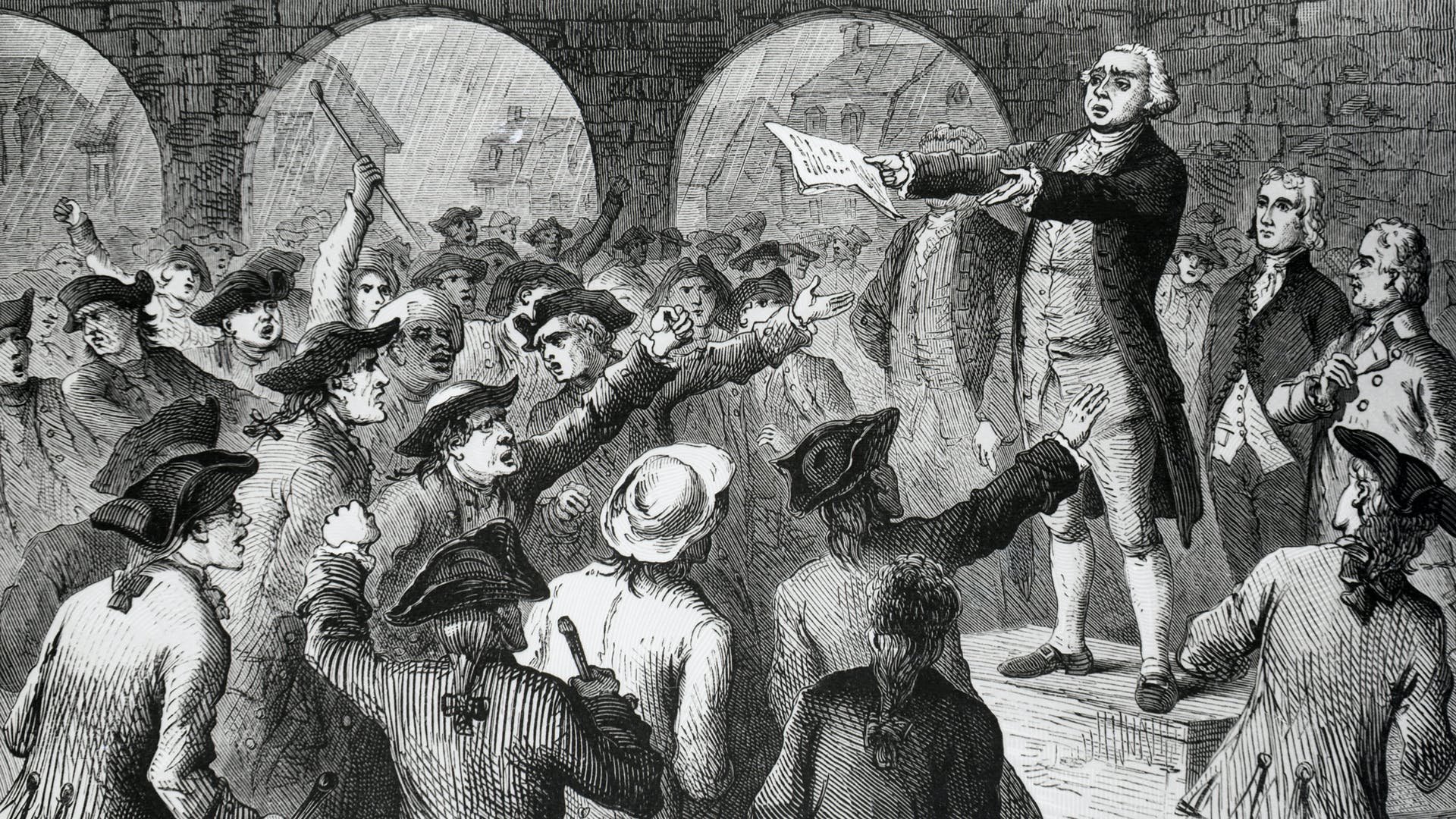About Publications Library Archives
cthl.org

Preserving American Heritage & History

Preserving American Heritage & History


Author: George Read
Date:1774
Annotation:
Britain responded to the Boston Tea Party with outrage. Convinced that rebels in Boston had to be taught a lesson, Parliament passed several laws that the colonists called the “Intolerable Acts.” One act closed Boston Harbor until Bostonians paid for the destroyed tea. Another measure gave the governor the right to move trials of those who injured customs collectors to another colony or to England. A third act allowed Britain to house troops in unoccupied private houses, so long as the army paid a fair rent. A fourth measure suspended Massachusetts’s royal charter, expanded the powers of the royal governor, and declared that town meetings could only be held with the governor’s permission. Thomas Hutchinson, the Massachusetts royal governor, asked for a leave of absence and went to England. The crown named Lieutenant General Thomas Gage, the commander in chief of British forces in North America, the new governor.
Colonial leaders viewed the “Intolerable Acts” as confirming the worst tendencies of imperial legislation over the past decade. These measures suggested that Britain could disband colonial legislatures, abolish local self-government, interfere with normal judicial procedures, and elevate military authority over civil authority.
At the same time, Parliament enacted the Québec Act, which fixed the southwestern boundary of the province at the Ohio River (extending Québec to the modern southern border of Oinio, Indiana, and Illinois) and declared Roman Catholicism to be Québec’s established religion. This measure further antagonized militantly anti-Catholic Protestants, who believed that the act transformed the West into a preserve for savages and Papists.
In the following letter, three leading Bostonians, serving on the town’s Committee of Correspondence, warn other colonists about the dangers that British actions posed to their liberties, demand a cession of British imports and exports, and call for a convention of delegates from the colonies to organize resistance to the Intolerable Acts. This convention, which would later be called the First Continental Congress, assembled in Philadelphia September 5, 1774, and included every colony except Georgia.
Document:
The Alarm which the British Act of Parliament, for shutting up the Port of Boston, had occasioned among us, makes it a matter of duty on this Committee to contribute as far as they may, to a general Union of Sentiments and Measures in the Colonies, as the most effectual method of relief, not only form the present encroachments on the Rights of the Inhabitants of Boston, but from future Attempts of the like kind.
We consider each Colony on this Continent as parts of the same Body, and an attack on one to affect all. The people of Boston are singled out on this occasion by the British Ministry for Apparent Reasons, and if they can succeed so far as to procure a submission…Experiment will be made on each Colony in turn, if this should happen, there would be an End to American Freedom for a Century at least.
Imports and Exports are things undoubtedly within the power of the Americans, and they are become of great Consequence to Britain, a total cessation of both, as to that Kingdom, for a time, would not only alarm in turn, but procure application for our relief…; therefore we apprehend a measure of this sort a necessary previous step in the present Exigency; and, from our knowledge of the Sentiments of the people within that small Government, we can with Confidence say that they would generally approve, and firmly support such an Engagement if adopted by the principal Colonies.
The Conduct of the British Parliament on this occasion, so derogatory of the character which that Senate once had, needs no Comment, a Shadow of Justice, a Cloak of Power used for America’s Scourge indicates the necessity of a Congress of Deputies from the several Colonies to determine and agree upon further measures for Redress of present or future Grievances; and we are Confident that if such a proposal shall be made by any one of the principal Colonies the Representatives of the People here will adopt it and embrace the first opportunity of carrying it into Execution….
Source: Gilder Lehrman Institute